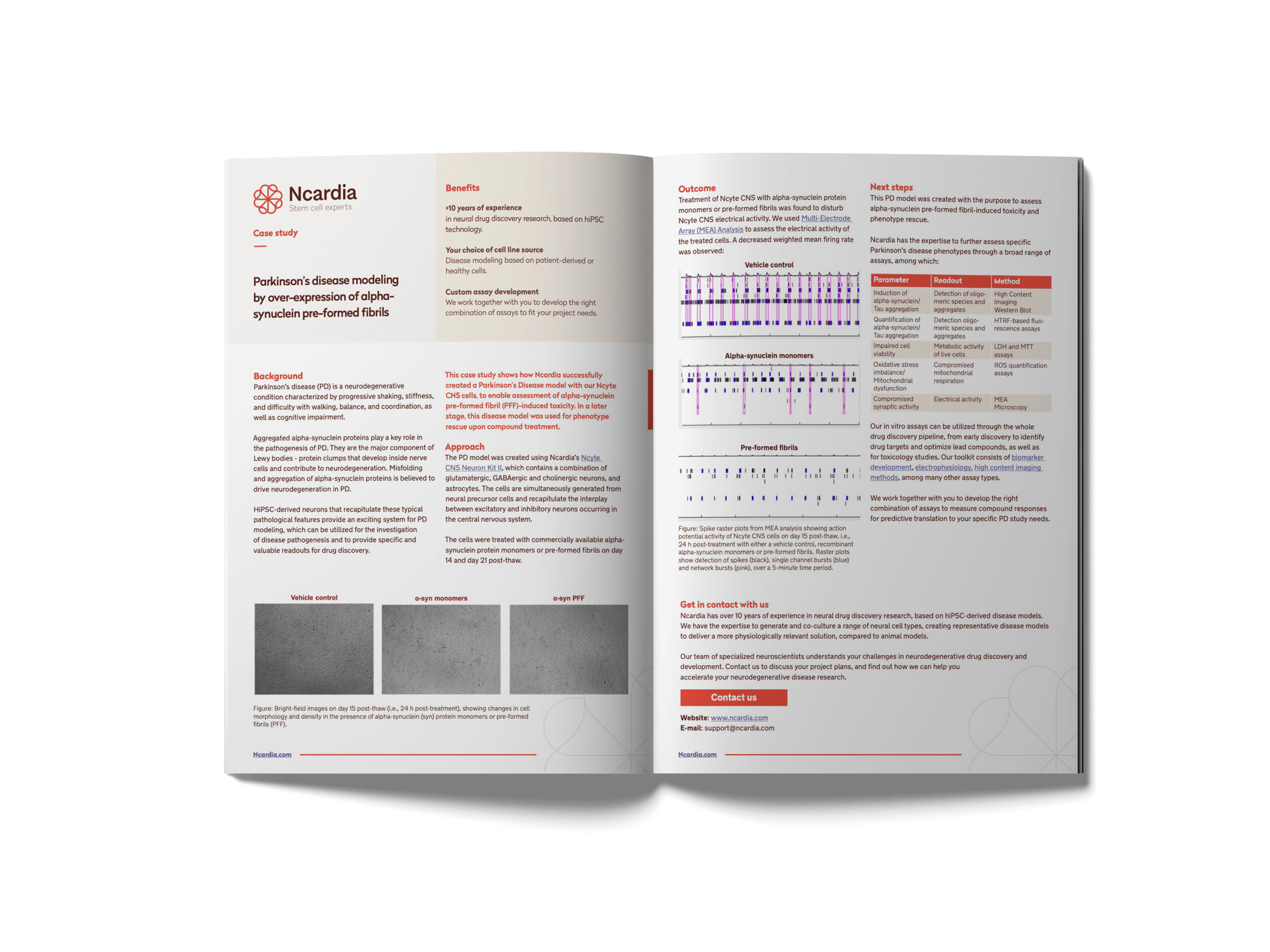Case Study: Parkinson's Disease Modeling
This case study shows how Ncardia developed a Parkinson's disease model from iPSC-derived neurons and astrocytes.
TAKE THE FIRST STEP

ABOUT US
Predict future safety and efficacy more efficiently
For more than a decade, Ncardia has been pioneering innovations in human induced pluripotent stem cells (iPSC). Our iPSC drug discovery platforms have been successfully leveraged by large biopharmas, up-and-coming drug discovery firms and multinational research consortia to advance therapeutic candidates for cardiovascular, neurological and other disease areas.